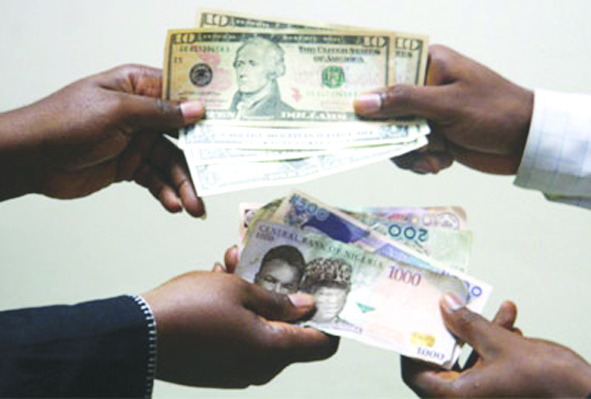[tweet][digg][stumble][Google][pinterest][follow id=”DER29709692″ size=”large” count=”true” ]
Many operators of the Bureaux De Change are in a dilemma as only about 2,500 out of 5000 licensed BDCs were able to meet the July 31 deadline given to them by the Central Bank of Nigeria to raise their operational capital from N10 million to N35 million
By Dike Onwuamaeze
Only about 2,500 out of over 5000 licensed Bureaux De Change operators (BDCs) were able to meet the July 31, 2014, deadline given by the Central Bank of Nigeria (CBN) for them to raise their operational capital from N10 million to N35 million and deposit another N35 million as cautionary fee. The initial deadline for compliance was July 15, 2014. But the CBN had to extend it to July 31 due to the agitation mounted by the Association of Bureau De Change Operators of Nigeria (ABCON) against the implementation of the policy when it was announced on June 23, 2014.
The CBN said it decided to issue the modified BDC guidelines in order to protect the country’s foreign reserve, which has been seriously depleted. According to available statistics, the funding of the BDCs depletes the reserve at an average of $6 billion annually which the Central Bank is unwilling to go on with. In addition, the apex bank intends to use the policy to compel the BDCs to achieve the role for which they were licensed. Godwin Emefiele, governor of CBN, alleged that the operations of the BDC had been “characterised by rent-seeking, weak operational structure, financing of illicit transactions, gradual dollarisation of the economy and multiple ownership of BDC licences which were against operational codes and license,” adding that the apex bank has resolved “to sanitise the operations of the BDC companies to stop the haemorrhaging of country’s foreign reserves.”
He explained that it has become imperative to defend the foreign reserve because anything that depletes the reserve puts Nigeria’s economy at risk. Its buoyancy determines the level of confidence foreign investors have in the Nigerian economy and influences their decision whether to invest or divest in the country. Currently, Nigeria is touted as an investment destination with highest return on investment. But this is not enough to bring those investments in. The level of liquidity in an economy is very important to foreign investors because it gives them the confidence that their money will be available when they need it. And the most important barometer to gauge the liquidity of Nigeria’s economy is the volume of foreign reserve it holds to defend its local currency.
According to Abimbola Olashore, chief executive officer, Lead Advisory Partners Limited, an investment and financial management concern, Nigeria’s “foreign reserve should be quite higher than it is today to give confidence that there would be no rush when investors need to take their investment away. Because the question is: will they call them back in dollars or in Naira? This is the risk we face.”
Moreover, depleting foreign reserve has a serious implication on the country’s capital market because when the flight of capital ensues the market will crash. Currently, this reverse is depleting. Foreign currency earnings from the sale of crude oil is dwindling as a result of crude oil theft in the country and the falling demand in the international market. Also, more countries are discovering oil in commercial quantities. For instance, the United States has reduced importation of crude oil from Nigeria following the discovery of Shale gas in the country while recent scientific breakthroughs are inventing alternative sources of energy.
The question now is: what will happen to BDCs that failed to meet the new capital requirement? According to Cletus Uduma, executive secretary, ABCON, the association was in a dilemma as members did not know yet what the Central Bank will do to those who could not recapitalise. He said that it is not yet certain the number of operators that fulfilled the new requirement given the short span given to them. “The future lies with the CBN who is the owner of the market and sets its rule,” he said. Alhaji Aminu Gwadabe, national president of ABCON, complained that “two weeks deadline given by the CBN is too short and even with the extension to July 31, I am sure that we cannot have more than 30 per cent which is about 1000 BDCs who will meet up with the deadline.” According to him, most ABCON members had sold off their properties at give-away prices and some even had to go and obtain loans at cut-throat rates to meet the deadline, while some BDCs had gone into mergers without meeting the statutory and legal requirements of such arrangements in a bid to beat the deadline.
There are indications that the Central Bank might not withdraw the licenses of BDCs that failed to meet the new capital requirement. However, they may be barred from sourcing foreign currencies from Central Bank. “Only BDCs that meet the new requirements will qualify to be engaged as agent by the licensed International Money Transfers Operators for inward and outward money transfer business in Nigeria,” CBN said.
[divider]


